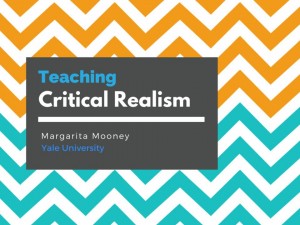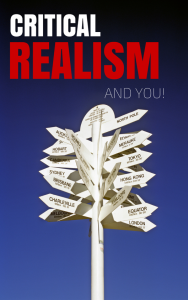Part 2 in a Series on Personhood.

As a graduate student in sociology looking for a middle way between liberal individualism and authoritarian collectivism, I first encountered what I now know forms part of a philosophical tradition called personalism when I read philosopher Jacques Maritain’s book Integral Humanism.
Just as Max Weber feared that increased rationalization would lead to disenchantment with the world, I started studying sociology because I cared about social inequalities and social injustices, but the more educated I became the more disenchanted I also became with modernity’s failure to live up to its promises of equality and progress for all.
Where could I turn to find new ideas that might renew my conviction that by knowing the world we could better the world? When Pope John Paul II visited Cuba in 1998, I read numerous summaries of his speeches where he critiqued both liberal individualism that reigns in the U.S. and much of Western Europe and the authoritarian collectivism of Cuba (and of his native Poland during most of his life). I was intrigued by the philosophy that could critique both the idea that economic prosperity is the final ends of individuals and societies and, at the same time, coherently argue against a collectivist system that denies private property, stifles free speech, and suppresses freedom of religion.
When I sat down to study Catholic social doctrine for the first time, what intrigued me was that the works I read started with basic questions such as: what is the good of human persons? What types of development uphold human dignity? Much of neoliberal economics seemed to be based on very utilitarian questions: what economic system will produce the greatest amount of goods and wealth? In achieving that goal of creating greater wealth, it seemed like almost any means could be accepted as long as the goal of generating utility was achieved by individuals unencumbered by others in their actions.
In contrast, collectivism, such as that practiced in communist countries, upholds the good of the group–also normally defined in material terms–over the good of individuals. Although some the goals of social solidarity may be laudable, I found the means of denying individual dissent, disallowing free expression, and the general coercion and manipulation rampant in communist systems to be an affront to human dignity.
In 2000, as I was headed to France for research on my dissertation, I ran into an eminent (and now emeritus) Professor of Politics at Princeton University, Paul Sigmund, who was on his way to Rome to visit his mother-in-law Lindy Boggs, a former Congresswoman who was then the U.S. ambassador to the Vatican. I had gotten to know Paul a bit through various conferences at Princeton, and his work on religion, politics and democratization in Latin America fascinated me. When I told him I had started reading Catholic social teaching because I was disenchanted with liberalism and collectivism, he immediately said, “You need to read Jacques Maritain.”
Over the next few hours on the plane, Paul told me about Maritain’s biography and ideas. Maritain was part of a generation of European intellectuals who, like me at that time, were disenchanted by the failures of both liberalism and collectivism. Maritain developed a new political philosophy that both defended the dignity of persons and also sought the common good based on free participation in collective works. Maritain’s ideas were extremely influential in the the Universal Declaration of Human Rights, the formation of Christian Democratic parties in Europe and Latin America, and in 20th century Catholic social teaching. I later found out that my grandfather and his brothers read and applied Maritain’s ideas to politics in Cuba to challenge Fulgencio Batista’s liberal authoritarianism, but they lost out to Fidel Castro’s collectivist and atheist totalitariansim.
In preparation for an upcoming presentation on personalism and sociology, I read the Stanford Encyclopedia of Philosophy’s entry on personalism and discovered Maritain is named as a leading figure of the European personalist school of philosophy. Kevin Schmeising’s article “A History of Personalism” also traces Maritain’s influence on European personalism. Through Peter Maurin, a Frenchman most known for his collaboration with Dorothy Day in the US, Maritain’s ideas greatly influenced American personalism as well.
According to the Stanford Encyclopedia of Philosophy, personalism is a term that refers to at least 20 different philosophers and other scholars who, in general, defend the inviolability of the person, stress the fundamental relationally of persons, see the person as a subject and object of free action, and emphasize the person is a center of meaning and value. Schmeising emphasizes the theological influences and religious backgrounds of many personalists (including many converts from atheism to Catholicism such as Maritain and Edith Stein). Perhaps because of the metaphysical training of many personalists, personalists argue for the importance of both body and spirit to understanding the person, thus opens them up to the reality of transcendence.
Personalism contrasts with Marxist materialism and other forms of collectivism in which the individual is subsumed to the communal and the individual has no inherent worth. Personalism, by contrast, argues that a person can never be simply the means to another end, but each person must be treated as an end in and of himself. Liberal individualism too often conflates utility and value, but personalism also rejects the utilitarian idea that a person’s utility is the same as his value. Another way of stating that a person’s worth is not reducible to the profit she or he makes is expressed when Schmeising quotes Maurin as saying “the foundation of the economy should be the ‘person, not profit.'” (p. 23)
To the extent that our economic system is flawed, Schmeising states that Maurin and other personalists would argue that we can’t fix our economic problems on by re-organizing economic structure, but we must also re-organize the economy around spiritual or human values as well. In this sense, Schmeising identifies Nobel laureate Amartya Sen’s work on human development as being influenced by personalists insights.
So, as I asked in my last post, what is the difference between an individual and a person? Every human person is an individual in the sense that he or she is a member of the human race, a particular being. But a person has a dignity, an irreplacibility, and a uniqueness that grow out of his or her dignity. As stated in the Stanford Encyclopedia entry:
“The major distinction is that an individual represents a single unit in a homogenous set, interchangeable with any other member of the set, whereas a person is characterized by his uniqueness and irreplaceability.”
This uniqueness cannot be changed with another, cannot be used by another, and has infinite value. Perhaps the most striking summary of personalism, as stated in the Stanford Encyclopedia entry, is:
“The person alone is ‘somebody’ rather than merely ‘something’, and this sets him apart from every other entity in the visible world.”
This idea, articulated by great thinkers like Jacques Maritain, captured the attention of great reformers like Dorothy Day, Martin Luther King, and many others. After first discovering this idea more than a decade ago, I still struggle to articulate personalism and live by its principles it in my own life. But yet, the ethical principle of personalism can be boiled down to clear and simple statements without losing its profundity. For example, as I read about personalism recently, my 9-year old nephew sitting next to me inquired what had me so intrigued.
I told him, “I’m reading about a philosophy which says that each person is unique and should not be used as an object for someone else’s good,” and he replied, “That sounds right to me!”
In future posts, I will elaborate more on how personalism influences social theory and research, so stay tuned. In the meantime, my reading of the history of personalism has shown me that not only Maritain, but others I have written about on these pages, such as Edith Stein and Amartya Sen, also have been influenced by personalism, so I invite you to read my posts on Stein and Sen if you have not already.











